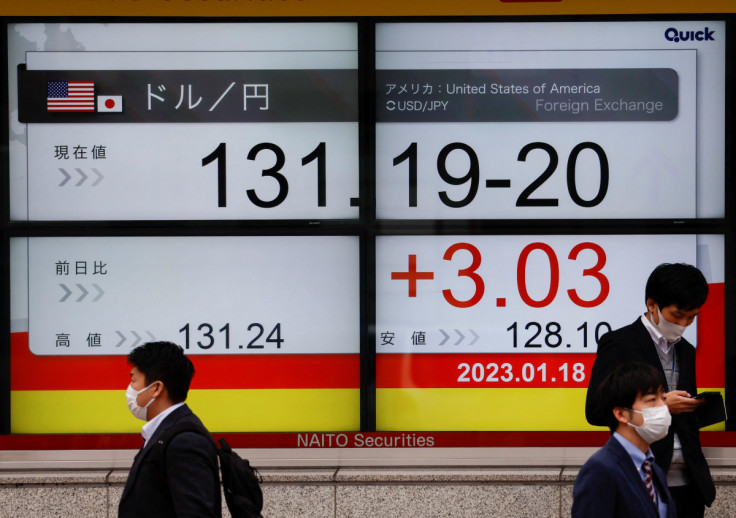Stocks pause near five-month peaks on note of caution
World stocks paused near five-month highs on Wednesday, as signs that central banks might need to keep hiking interest rates for longer dampened a recent wave of optimism that aggressive monetary tightening by big central banks was almost done.

World stocks paused near five-month highs on Wednesday, as signs that central banks might need to keep hiking interest rates for longer dampened a recent wave of optimism that aggressive monetary tightening by big central banks was almost done.
Australia's dollar shot up to its highest in over five months after data showing inflation rose to a 33-year peak of 7.8% last quarter bolstered the case for another interest-rate hike from the Reserve Bank of Australia (RBA) next month.
Canada's central bank is widely expected to lift interest rates again later on Wednesday, with recent strong data supporting expectations for another move.
Trade in European stocks was lacklustre and the broad Euro STOXX 600 fell 0.4%. U.S. stock futures pointed to a weak Wall Street open.
Globally, stocks have posted strong gains this year after a rout in 2022, on expectations that inflation has peaked and that U.S. interest rate rises will taper off. The dismantling of COVID controls in China and the re-opening of its borders have further boosted investor sentiment.
MSCI's world equity index, up more than 6% this month, was broadly steady near five-month highs.
"Our view is that the move in risk assets is overdone," said Guy Miller, chief market strategist at Zurich Insurance Group.
"Broadly speaking, the problem that we have is that economic conditions are getting worse and the data we are looking at points in that direction."
In Asia, MSCI's broadest index of Asia-Pacific shares outside Japan hit a seven-month high. Trading volume was depressed as Chinese and Taiwanese markets were still closed for the Lunar New Year holiday.
Shares in Microsoft were down 2.4% in premarket trading. Microsoft on Wednesday said it was investigating a networking issue that impacted multiple services.
The tech titan's better-than-expected results on Tuesday showed some strength in the face of a weak economy but limp revenue growth signalled tougher times for the sector.
AUSSIE DOLLAR SURGE
In currency markets, the Australian dollar surged to $0.7123 after the latest inflation data. Australia's currency has risen 1.6% this week and is poised for its biggest weekly jump in over two months.
Investors sharply narrowed the odds on the RBA lifting its cash rate by a quarter point to 3.35% when it meets on Feb. 7. Previously, some analysts had thought there was a chance the RBA might pause its tightening campaign.
Canada's dollar was trading nearly unchanged at 1.3370 to the greenback ahead of the Bank of Canada's rate decision.
"Once a hawkish standout, the Bank of Canada is facing a hike/no-hike dilemma today," said ING currency strategist Francesco Pesole.
"This is, at least, what market pricing seems to suggest, with 17 bps of tightening priced in for today's announcement," he said, adding that he expected a 25 bps rate increase.
The euro slipped 0.2% to around $1.0887, edging off recent nine-month peaks.
Data showing German business morale brightened in January didn't appear to be reason enough to push the single currency higher for now.
Germany's Ifo institute said its business climate index rose to 90.2, in line with the consensus, according to a Reuters poll of analysts, and up from 88.6 in December.
The New Zealand dollar fell after data showed annual inflation of 7.2% in the fourth quarter, below a central bank forecast of 7.5%.
Oil prices edged higher, with Brent crude futures up 0.3% at $86.40 a barrel after declining 2.3% in the previous session. West Texas Intermediate (WTI) U.S. crude rallied 0.4% to $80.44, after a 1.8% drop on Tuesday.
Gold prices fell 0.7% to $1,923 per ounce, off a nine-month peak touched in the previous session.

Copyright Thomson Reuters. All rights reserved.



















